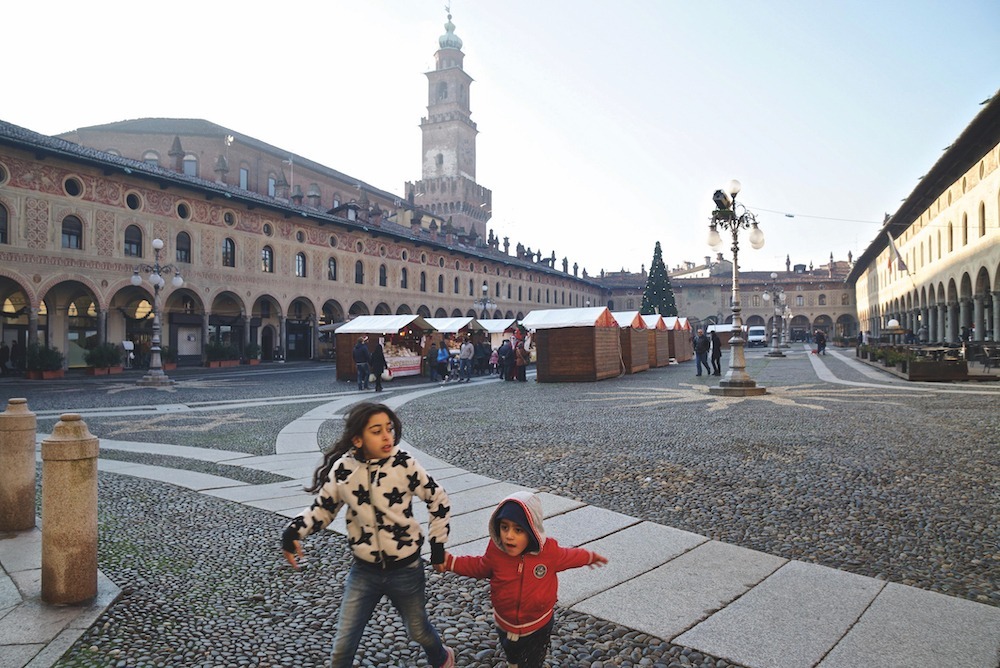
Exiles: Three Island Journeys (Faber & Faber) by William Atkins
Motherlands: In Search of Our Inherited Cities (Bloomsbury Publishing) by Amaryllis Gacioppo
In 1688, Johannes Hofer, a 19-year-old medical student from Berne, observed a condition that medicine had yet to define. Symptoms of this “melancholy delirium” might include fever, disturbed sleep, palpitations, loss of appetite and anxiety. The Germans had a word for it: heimweh or “home-woe”. But Hofer coined a new medical term from the Greek nostos, meaning a homecoming, and algos, denoting pain. He called it nostalgia: an unassuageable grief for a lost homeland.
The meaning of nostalgia may have changed, but two original and remarkable new books explore how Hofer’s insight might resonate today in an age of mass migration and resurgent nationalism. Both dig deep into difficult questions around identity and belonging.
Exiles: Three Island Journeys by William Atkins takes as its starting point the lives of three late 19th-century political exiles, each a figure of resistance and change. The French CommunardLouise Michel was transported to the Pacific island of New Caledonia. Dinuzulu kaCetshwayo, a Zulu king, was exiled by the British to St Helena in the South Atlantic. And the Jewish Ukrainian revolutionary Lev Shternberg was sent to Sakhalin Island, off the coast of Siberia, by Tsarist Russia.
Atkins’ primary interest is in how his subjects adapted to these ruptures in their lives. “The thought of the distance kills us,” one of Michel’s fellow Communard exiles said. In later life, Shternberg taught ethnography in St Petersburg. His students described him as a man “charred by some internal burning”. Another exiled Communard “died of grief at receiving no news from home”. To be so unmoored was a kind of death-in-life.
But you couldn’t go back, even when you did, in fact, go back. For Dinuzulu, who adopted European clothing and manners during his eight years on St Helena, this was literally true. The defeated kingdom he left behind was broken up by the British, and he returned no longer a king, but as the governor of what was essentially a vassal territory, fractured by conflict and imperial taxation. And yet the land and its people were the source of his identity: “the closer to his land he was allowed to be, the more powerful he grew,” Atkins writes.
Atkins visited the places he writes about. He searches for the traces his subjects left on the spaces they inhabited. But he is also exploring other kinds of exile and fracture, in particular the legacies of empire on these island prisons: the traumas that exiles and subject peoples might share. The indigenous Kanak of New Caledonia are still struggling today to free their country from French dominion. Atkins’ arrival coincides with a fractious independence vote, which the Kanak lost. He quotes the Kanak
independence campaigner Jean-Marie Tjibaou: “The hardest thing is to stay alive and feel like a stranger in your own land.”
***
Imperial Europe transported immense numbers to its penal colonies. The British empire dispatched some 376,000, Tsarist Russia nearly two million. Exiles, then, is an intimate account of an epic phenomenon. Amaryllis Gacioppo’s concern in Motherlands: In Search of Our Inherited Cities is more directly personal. Her starting point is the legacy of four generations of matrilineal migration within her family – in the 1920s from Turin to Benghazi, then part of Italian colonial Libya; from Benghazi to Palermo by way of Rome in the 1940s; from Palermo to the Sydney suburbs two decades later; and, for Gacioppo herself, a recent move from Australia, her place of birth, to Italy, a country that has both always and never been home to her.
As Gacioppo traces these stories of displacement from city to city she explores wider ideas about dislocation and belonging. She recreates daily familial journeys and routines, trying to “trigger a kind of temporal magic . . . [accessing] powers of memory or meaning or association”. She is particularly interested in photographs and maps. A map of Allied bomb damage to Rome pales before the reality of a satellite photograph; but in colonial Benghazi it is the great-grandparents’ photos that seem unreal.
Turin, Nietzsche said, is “the first place where I am possible”. If the goal of all migration is to find such a place, what of countries that make migrant lives impossible? In Rome, Gacioppo meets a woman campaigning for the rights of 1.5 million young Italians without citizenship, many of whom arrived in their infancy. They call themselves “ghosts by law”, denied a connection to their homeland’s past, along with the certainty of a settled future.
Gacioppo writes eloquently about the alienating dislocation of the unheimlich (literally, the unhomely) – what she calls “a dispersal of the self, a confused state of inner unmooring”. At the other end of the extreme, she visits the former SS headquarters in Rome, now a museum. In the cells, scratched into the walls, are the messages of the soon-to-be-tortured, soon-to-be-dead. “Love Italy”, one reads. “Those who die for the homeland live for eternity”, reads another. What is this idea of home, of place, that
belonging to it is more powerful than death?
Mobility – migration, exile, colonisation – has always been part of the human condition. And the most meaningful kinds of belonging have nothing to do with borders or governments. “[A] relationship to the land as a basis of cultural identity is one that echoes the beliefs and religions of native peoples all over the world,” Gacioppo writes. But roots can also regrow. When Louise Michel returned to France from exile, she smuggled five cats out with her. They were, she said, “something alive left from home”.
Both of these complex, thoughtful and deeply moving books also look towards the larger idea that, as Gacioppo writes, “With each step forward into the future, something is lost, and this loss, the void created by it, travels with us. It is there to remind us that there is no such thing as returning.” That is, the griefs of time, of separation, of mortality are another exile from which there is no return. If a true homecoming is impossible and this greater kind of exile haunts us all, who amongst us remains unbroken?
This piece is from the New Humanist autumn 2022 edition. Subscribe here.

